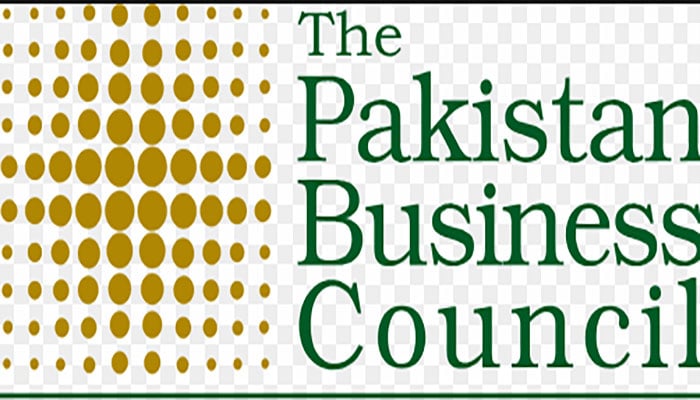PBC pitches solutions to avoid premature deindustrialisation
KARACHI: Pakistan Business Council (PBC) has recommended sustainable and competitive energy supply pro-growth fiscal policy, infrastructure and low-cost financing as the four key drivers to revive the industry from its premature deindustrialization.
A pan-industry advisory group PBC believes that Pakistan has ‘prematurely’ deindustrialized as exorbitant taxes on industries, high energy tariffs and tilt toward commercial importers keeps investment as a percentage of GDP significantly lower than the region.
“Counterfeiting, adulteration, smuggling and under-invoicing plagues the formal sector. The net result is that Pakistan’s share of world exports has declined, exports in value terms are stagnant and narrow in both composition and destination,” Ehsan Malik, chief executive of PBC said in a comprehensive letter to Minister of Industries and Production Khusro Bakhtiar and the recently-revived Economic Advisory Council.
“With import-reliant private consumption dominating the GDP, not only have jobs been lost but the country’s external account continues to experience recurring imbalances, forcing it to go to the IMF [International Monetary Fund] repeatedly. Worse still, crop failures and food shortages result in inflation and persistent shortfalls in the cotton crop denies textiles, the country’s main export sector of its primary input. Pakistan is the “sick man” of South Asia. We lag in virtually every key socio-economic measure.”
Betting on industrialization, PBC says it is the solution to employ “two million youth that annually reach employable age, besides the estimated 10 million jobless and under-employed”.
“Skills need to be developed to add value to and diversify exports. Economic diplomacy needs to focus on gaining more favorable market access for our exports. Services should be provided the same if not more attractive incentives than goods to grow exports,” said Malik. “The policy for FDI needs to differentiate positively in favour of export and import substitution – much of the current FDI is in quick and high pay-back market seeking, domestic consumption sectors which drain the external account. In the long-run, sovereignty can only be sustained through economic solvency.”
Malik said the energy sector is beset with over-capacity, poor transmission and distribution and weak governance all of which result in line losses, non-recovery of bills and theft. By penalising honest consumers with the cost of these systemic inefficiencies the competitiveness of country’s industries and hence its capacity to create employment and generate exports is already impeded.
An additional 27 percent reported increase in energy costs will further harm consumers and lead to inflation. High tariffs for electricity also reduce the incentive for domestic users to switch out of the less efficient and underpriced gas, local reserves of which are depleting rapidly. Reforms therefore need to holistically address the causes of sub-optimal pricing and usage and minimize reliance on imported fuel. Otherwise, the broader objectives of job creation, balancing the external and fiscal accounts, as well as raising higher taxation revenues for social development will remain affected, he added.
PBC believes that the Federal Board of Revenue (FBR) is given an unrealistic tax target, which in the absence of resources and capability, force it to extract more tax from existing taxpayers. For FY22, the mooted 27 percent higher tax target is an example.
“Minimum tax based on turnover is fundamentally flawed and acts as a barrier to entry of new players as it raises the initial investment required to cover tax payable in early loss years. FBR’s reliance on minimum, advance and withholding taxes has grown sharply as this is an easier way than assessing taxable profits,” said Malik.
PBC chief said private sector is crowded out by government borrowing. Commercial bank lending is primarily for short to medium term and banks are shy to take exposure to small and medium enterprises.
The government advised to form a credit guarantee institution to support development of the African and Central Asian markets.
-
 Melissa Jon Hart Explains Rare Reason Behind Not Revisting Old Roles
Melissa Jon Hart Explains Rare Reason Behind Not Revisting Old Roles -
 Meghan Markle Eyeing On ‘Queen’ As Ultimate Goal
Meghan Markle Eyeing On ‘Queen’ As Ultimate Goal -
 Japan Elects Takaichi As First Woman Prime Minister After Sweeping Vote
Japan Elects Takaichi As First Woman Prime Minister After Sweeping Vote -
 Kate Middleton Insists She Would Never Undermine Queen Camilla
Kate Middleton Insists She Would Never Undermine Queen Camilla -
 King Charles 'terrified' Andrew's Scandal Will End His Reign
King Charles 'terrified' Andrew's Scandal Will End His Reign -
 Winter Olympics 2026: Lindsey Vonn’s Olympic Comeback Ends In Devastating Downhill Crash
Winter Olympics 2026: Lindsey Vonn’s Olympic Comeback Ends In Devastating Downhill Crash -
 Adrien Brody Opens Up About His Football Fandom Amid '2026 Super Bowl'
Adrien Brody Opens Up About His Football Fandom Amid '2026 Super Bowl' -
 Barbra Streisand's Obsession With Cloning Revealed
Barbra Streisand's Obsession With Cloning Revealed -
 What Did Olivia Colman Tell Her Husband About Her Gender?
What Did Olivia Colman Tell Her Husband About Her Gender? -
 'We Were Deceived': Noam Chomsky's Wife Regrets Epstein Association
'We Were Deceived': Noam Chomsky's Wife Regrets Epstein Association -
 Patriots' WAGs Slam Cardi B Amid Plans For Super Bowl Party: She Is 'attention-seeker'
Patriots' WAGs Slam Cardi B Amid Plans For Super Bowl Party: She Is 'attention-seeker' -
 Martha Stewart On Surviving Rigorous Times Amid Upcoming Memoir Release
Martha Stewart On Surviving Rigorous Times Amid Upcoming Memoir Release -
 Prince Harry Seen As Crucial To Monarchy’s Future Amid Andrew, Fergie Scandal
Prince Harry Seen As Crucial To Monarchy’s Future Amid Andrew, Fergie Scandal -
 Chris Robinson Spills The Beans On His, Kate Hudson's Son's Career Ambitions
Chris Robinson Spills The Beans On His, Kate Hudson's Son's Career Ambitions -
 18-month Old On Life-saving Medication Returned To ICE Detention
18-month Old On Life-saving Medication Returned To ICE Detention -
 Major Hollywood Stars Descend On 2026 Super Bowl's Exclusive Party
Major Hollywood Stars Descend On 2026 Super Bowl's Exclusive Party




